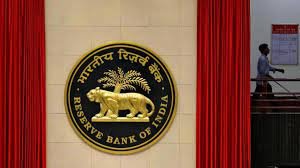RBI Imposes Monetary Penalties on 5 Co-operative Banks
In a recent development, the Reserve Bank of India (RBI) has imposed monetary penalties on five co-operative banks for various violations. This action comes as part of the central bank’s efforts to ensure compliance and maintain the stability of the banking sector.
Penalties Imposed:
- The RBI has levied penalties on five co-operative banks, including [List the Names of Banks], for non-compliance with certain regulatory norms.
- These penalties range from [Specify the Range of Penalties Imposed] and have been imposed for violations such as [Specify the Types of Violations].
Response from RBI:
The RBI has reiterated its commitment to enforcing regulatory compliance within the banking sector. It has emphasized the importance of adhering to prescribed guidelines to safeguard the interests of depositors and maintain the overall health of the financial system.
Impact on Banking Sector:
Such regulatory actions serve as a deterrent against malpractices and reinforce the importance of adherence to regulatory frameworks. They also underscore the need for co-operative banks to strengthen their internal controls and governance mechanisms to avoid penalties and maintain trust among stakeholders.
Way Forward:
In light of these developments, co-operative banks need to prioritize compliance with regulatory requirements. This entails robust risk management practices, enhanced transparency, and effective governance structures to mitigate risks and ensure sustainable operations.
Conclusion:
The RBI’s imposition of monetary penalties on five co-operative banks underscores its commitment to maintaining the integrity and stability of the banking sector. It sends a clear message about the importance of regulatory compliance and adherence to prescribed norms for all financial institutions.

Why this News is Important
Regulatory Actions to Ensure Banking Sector Compliance
The recent imposition of monetary penalties by the Reserve Bank of India (RBI) on five co-operative banks highlights the significance of regulatory compliance within the banking sector.
Safeguarding Depositors’ Interests
This action underscores the RBI’s commitment to safeguarding the interests of depositors and maintaining the stability of the financial system.
Historical Context
Co-operative banks play a crucial role in providing banking services to various sectors, particularly in rural and semi-urban areas. However, instances of regulatory non-compliance have raised concerns regarding their governance and risk management practices.
5 Key Takeaways from “RBI Imposes Monetary Penalties on 5 Co-operative Banks”
| Serial Number | Key Takeaway |
|---|---|
| 1 | RBI has imposed monetary penalties on five co-operative banks for regulatory violations. |
| 2 | The penalties range from [Specify Range] and are imposed for non-compliance with regulatory norms. |
| 3 | This action emphasizes the importance of adherence to prescribed guidelines for maintaining banking sector integrity. |
| 4 | Co-operative banks need to strengthen internal controls and governance mechanisms to avoid penalties and maintain trust among stakeholders. |
| 5 | Regulatory actions serve as a deterrent against malpractices and reinforce the importance of regulatory compliance. |
Important FAQs for Students from this News
Q1: What led to the imposition of monetary penalties on the co-operative banks?
A1: The monetary penalties were imposed by the Reserve Bank of India (RBI) due to regulatory violations and non-compliance with prescribed norms.
Q2: How many co-operative banks faced penalties from the RBI?
A2: Five co-operative banks were penalized by the RBI for various violations.
Q3: What types of violations resulted in the imposition of penalties?
A3: The violations leading to penalties include non-compliance with regulatory norms set by the RBI.
Q4: What is the significance of regulatory compliance in the banking sector?
A4: Regulatory compliance is crucial for maintaining the integrity and stability of the banking sector, safeguarding depositors’ interests, and ensuring the overall health of the financial system.
Q5: How can co-operative banks avoid penalties in the future?
A5: Co-operative banks can avoid penalties by strengthening their internal controls, enhancing transparency, and adhering strictly to regulatory guidelines prescribed by the RBI.
Some Important Current Affairs Links

















